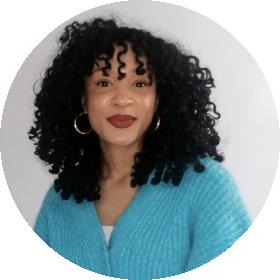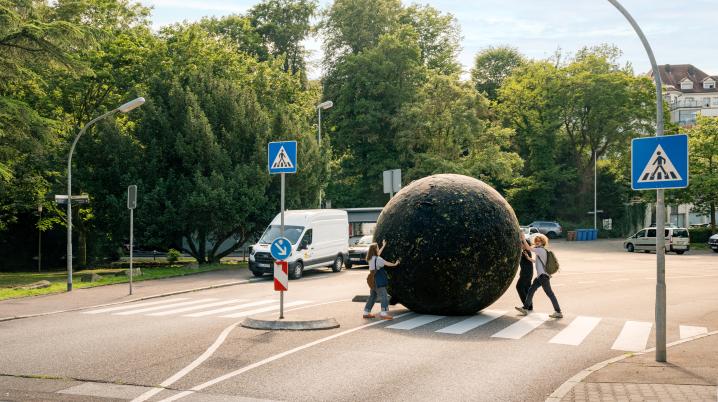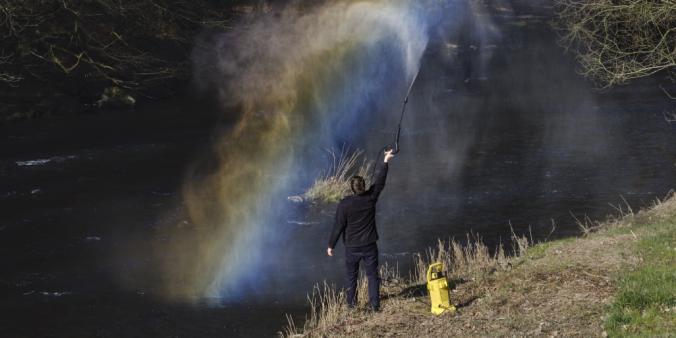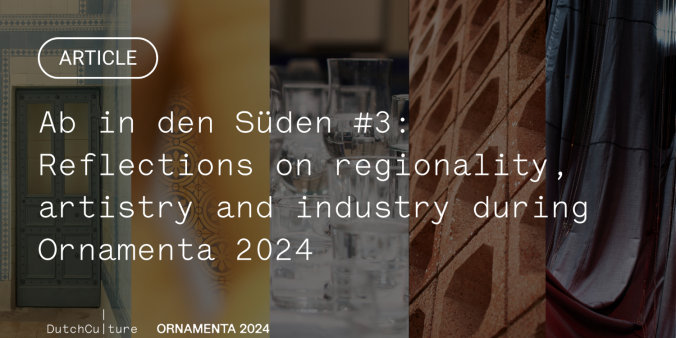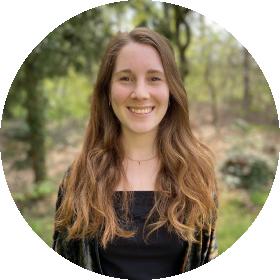
This is the second of the three-part article series ‘Ab in den Süden’, where DutchCulture investigates the opportunities and challenges that come with working in Southern Germany. By taking Ornamenta 2024 as an example, we explore the concept of ‘genius loci’ to emphasize the unique atmosphere of a place. We also share some wisdom from curator Jules van den Langenberg, based on his experience with working with local partners and international makers in German provinces.
Regenerating the Northern Black Forest region
In 2021, a group of entrepreneurs from Pforzheim, Germany, identified the need to bring the Northern Black Forest region back to life through art and culture. Their goal: regenerating the Ornamenta, which took place once in 1998 without continuation due to budgetary shortcomings and a lack of political interest. Together with Katharine Wahl (DE) and Willem Schenk (NL), Van den Langenberg (NL) was chosen to curate the revival of the Ornamenta. ''We were interested in reacting to the site [Northern Black Forest area] and its genius loci, the spirit of the space'', Van den Langenberg shares.

The genius loci refers to a place’s distinctive atmosphere. The concept is often used in (landscape) architecture and design, linking to the aura and spirituality of a particular place. Out of respect for nature and locals in the region, the curational trio found it crucial to discover the area's genius loci as preparation for the cultural programme. They have done so by living one week a month in a different village, organizing gatherings with artists and events with local communities, and attending meetings with companies, mayors and local politicians.
The result: a cultural programme of local and European relevance, translated into five themes addressing issues that affect people across all layers of society. The themes relate to the sun, water, technology, air pollution, waste, circularity, migration, loneliness and human relationships - topics that are not only relevant in the region, but present across Europe. Every weekend during July and September 2024, visitors can follow five different routes depending on their interest and needs.
How to work in (German) provinces: 5 suggestions based on Van den Langenberg's experience at Ornamenta 2024
- Get to know the genius loci of your destination
Whereas in cities, existing (cultural) infrastructures allow a somewhat soft landing for curators and makers, working in - often overlooked - provinces asks for more persistence and in-depth exploration of the genius loci. With its 16 federal states, 20 dialects, various cuisines and diverse landscapes, Germany has many locality-specific cultures. The country's decentralized political structure and local policy making affects local conditions and frameworks. Discovering the identity and spirit of a particular place is therefore a necessity. As Van den Langenberg puts it: ‘’You have to be very aware of your context, behaviors, routines at the meeting table, and body language. There's a certain kind of awareness in being in a Bundesland (federal state). There are slight differences in attitudes .’’
- Make time to build connections and socialize outside of your bubble
The curational trio for Ornamenta worked on reviving, confronting and complimenting the cultural identity of the region, with the attempt to discover the different layers of society and uniting them at Ornamenta 2024. Their approach was brave and asked for commitment and resilience. ''We stayed in over thirty villages throughout the entire region, every time based in a different place: a hotel, someone's home, at a company'', tells Van den Langenberg. By immersing themselves in various communities all over the region for three years, he socialized with local companies, investors, politicians, mayors, the cultural scene, and last but not least the local population, including agrarians, high profile entrepreneurs, communities with immigration experience, the elderly and the local youth. An extremely broad group of people to deal with, and to seduce. Only by taking enough time was the curational trio able to unravel the demands and unwritten set of rules in the region.
- Work within the local context
One of the challenges Van den Langenberg and his co-curators had to tackle was building a cultural programme in a region with very few white cubes. The fact that institutional art spaces are rare in provinces also pushed the team to think of alternative, unconventional exhibition spaces, such as the forest, a newly built neighborhood, a jewelry store and heritage sites. ''We have been looking at the zones that are perhaps mostly in need of an activation or intervention'', Van den Langenberg reflects, hinting for instance at the Spa history of the area and villages in between larger cities like Stuttgart, Baden-Baden and Karlsruhe.
- Make use of private funding and gather local stakeholders
In Germany, especially in provinces, private funding is often used to implement cultural activities, including sponsorship, grants by foundations, donations and fundraising. Be aware that this asks for persistence. Van den Langenberg elaborates: ''You have to be quite resilient when you want to work in Germany and do something new. You have to gather stakeholders''. When entering the region, the Ornamenta curators first identified local businesses that are willing to invest in the region and aim at sustainable outcomes. Now they work with deeply rooted (family) businesses from the jewelry, metal and car industries. Those are businesses one would not connect with the arts in the first place. However, matching them with the right creative counterparts can lead to inspiring projects – and sponsorship. Besides that, the OrnamentaBund and City of Pforzheim are key supporters.
- Learn German – or at least make an attempt
We know it's hard. But making an attempt will be worth it. Not speaking German can be a barrier, since especially in more provincial areas, people are less used to speaking English. Speaking and writing German makes you gain trust among local crowds and eases the start of a conversation. Van den Landenberg raises another important and rather ethical point: ''Who are we [curators] to come in and speak English, whilst communities with Turkish, Polish and Italian backgrounds entered the area and were expected to speak German right away?'' Learning the language will open many doors and show respect among locals.
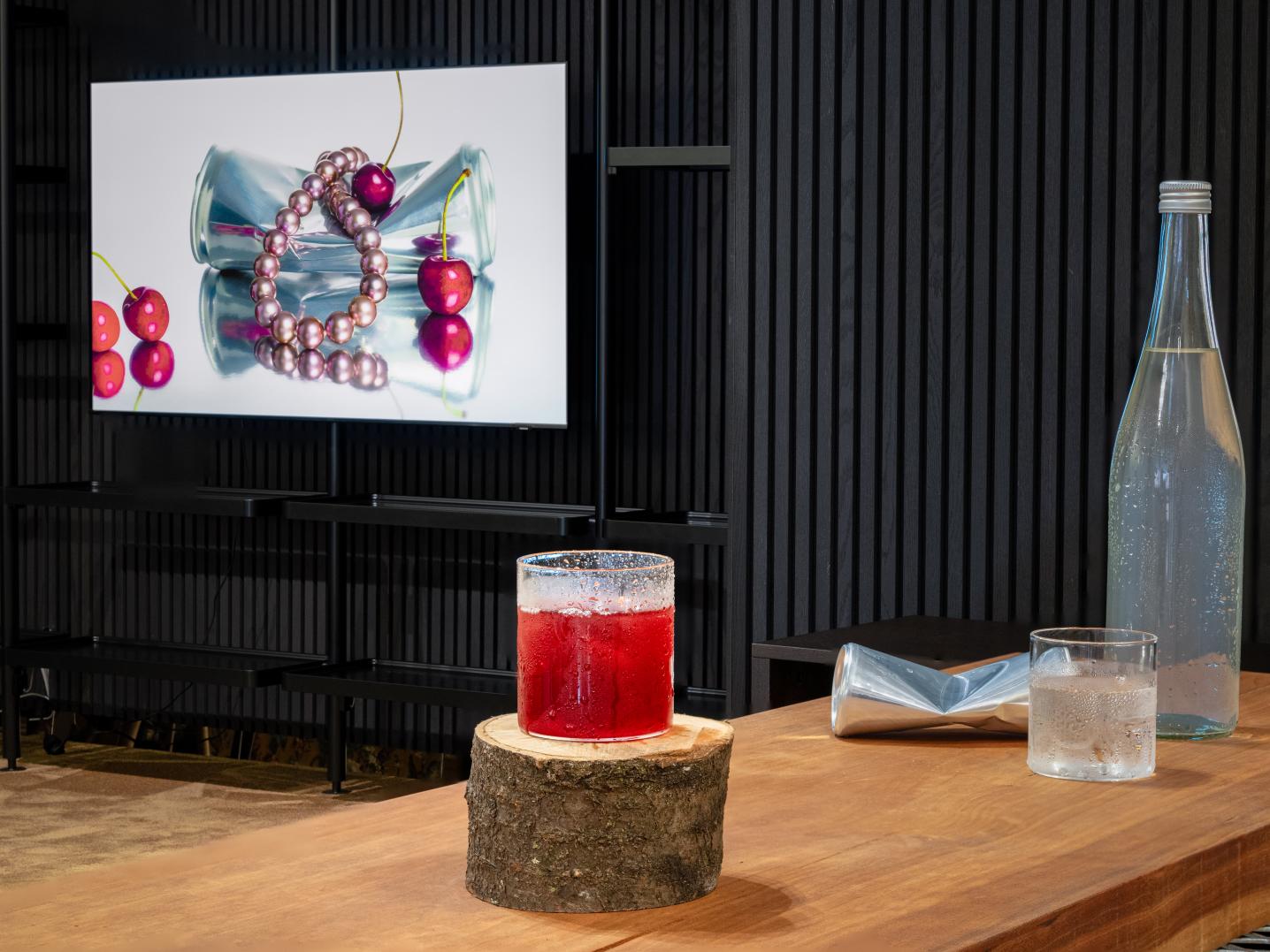
Stay tuned for our third article, to be published in the beginning of September, in which a selected group of Netherlands-based cultural professionals, who visited the Ornamenta 2024 in July, reflect on various international projects and recollect the genius loci of specific sites/projects.
